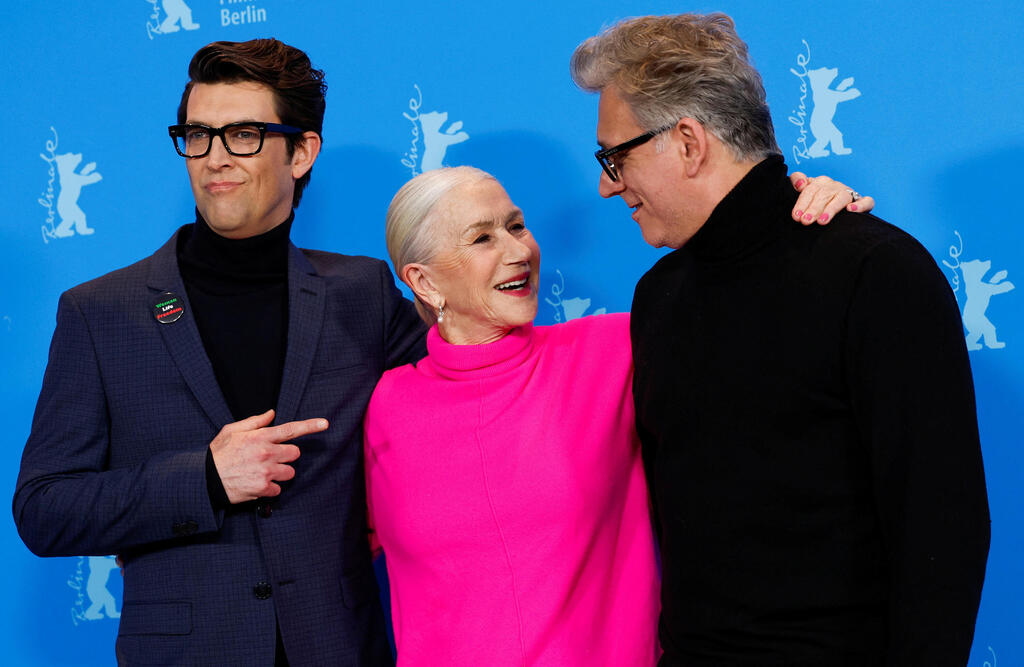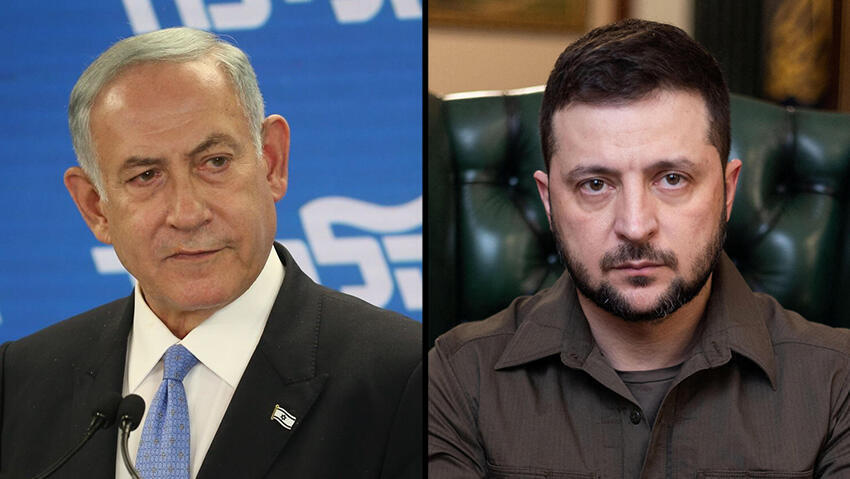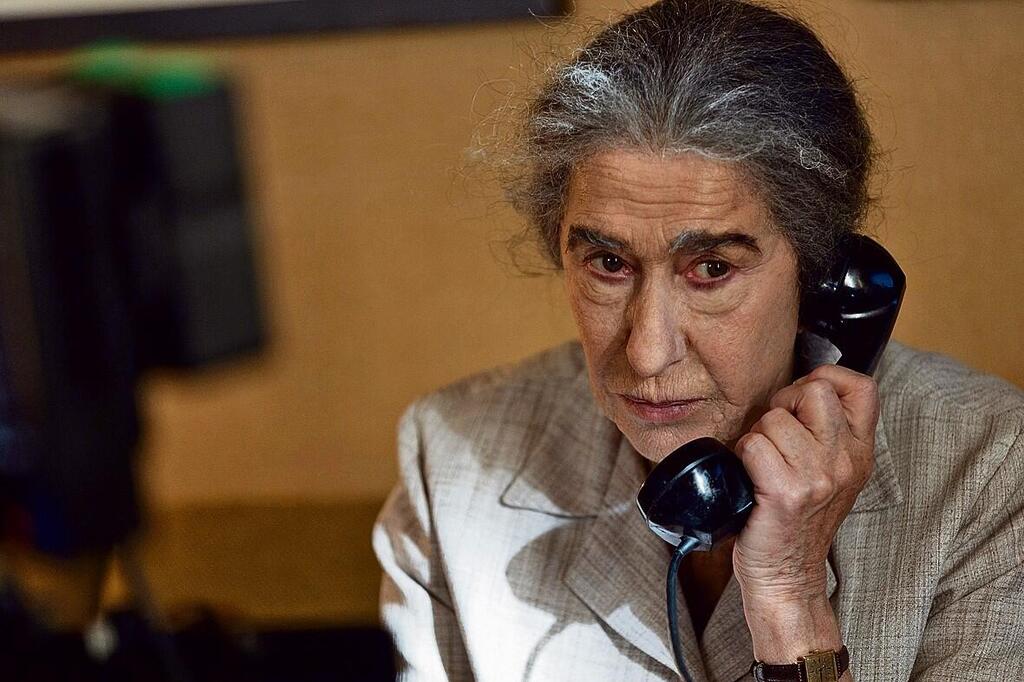Getting your Trinity Audio player ready...
A Russian organization known as "Ofitzeri Rosii," or "Officers of Russia," has contacted the prosecutor general of the Russian Federation, Igor Krasnov, alleging historical inaccuracies in "Golda," the movie by Israeli director Guy Nattiv, which tells the story of the former Israeli prime minister, played by Dame Helen Mirren.
Read more:
The film's Russian premiere took place in Moscow several days ago as part of a Jewish film festival, and it premiered in Russian theaters threes day ago.
The Russian organization is livid with how the former Soviet Union was portrayed, as well references by Golda Meir, a native of the Ukrainian capital of Kiev, to Ukraine as a country. They allege Ukraine was never a sovereign nation, but merely a territory of greater Russia.
They further claim their complaint is not only their own, but rather a joint appeal by many Russian citizens who have noticed the many ways in which Russia was defamed as the movie unfolded, and that it was clear the movie's creators were attempting to trigger a rift within Russian society, including between Russians and Jews.
"We received an appeal from citizens who were present at this screening," their message said, "who noted the undisguised Russophobic context of this propaganda product of the British film industry, an attempt by English scriptwriters and directors to split Russian society, including along ethnic and religious lines, pitting Russian and Jewish people against each other."
3 View gallery


Helen Mirren alongside Lior Ahkenazi and directir Guy Nattiv at the premiere of 'Golda'
(Photo: Reuters)
"Considering the difficult foreign policy situation and the ongoing special military operation, in which, by the way, military personnel and volunteers of both Russian and Jewish nationality, as well as many other nationalities, perform service and combat tasks shoulder to shoulder, these attempts look especially cynical and contradict the tasks of preservation and strengthening of traditional Russian spiritual values, including those set forth in the National Security Strategy of the Russian Federation."
In order to solidify the Russian-Israeli connection, they said, "the film contains numerous attacks on the Soviet Union, which allegedly unleashed a war against Israel through the Arab states. This ignores the historical fact that it was the Soviet Union that strengthened the creation of Israel as a state, and diplomatic relations between the Soviet Union and Israel were severed only after the Israeli aggression in 1967, when Tel Aviv suddenly attacked its neighbors, violating all norms of international law."
Challenging the movie's characterization of Ukraine based on a faulty timeline, the group said the film "also contains historical distortions. For example, in one of the plots, the heroine G. Meir (born 1898) tells H. Kissinger a story from her early childhood, allegedly spent in Ukraine, and about some atrocities of the 'Cossacks,' although everyone knows that there was no Ukraine at that time and it was actually created by the Bolsheviks after the revolution of 1917."
The organization noted that Russian films cannot be screened in the United Kingdom, and therefore British films should not be allowed to be screened in Russia.
"We ask you to instruct us to check the feature film “Golda” to make sure it complies with current Russian legislation and give a legal assessment, as well as check that the film is in compliance with the tasks of preserving and strengthening traditional Russian spiritual values and maintaining harmonious interethnic harmony in Russian society," the group said.
The appeal was signed by the chairman of the Presidium of the all-Russian organization Officers of Russia, Hero of Russia, Major General Sergey Lipovoy. A similar appeal was sent to the Minister of Culture of the Russian Federation Olga Lyubimova.
3 View gallery


Awkward timing as Russian-Israeli cinema deal came just before Netanyahu-Zelensky conversation
(Photo: Shaul Golan, Reuters)
Screening of the movie in Russia represents awkward timing, as Israel and Russia recently signed a cooperation pact in the area of cinema, and Israelis who fiercely object to the Russian invasion of Ukraine see this deal as legitimizing the unprovoked Russian aggression.
Signing of the deal further suggests inartful deal-making by Israel's Foreign Ministry, as the deal has been in the works for 15 years, and its timing is cynically utilized by Russian officials as exhibit A in demonstrating how the Ukrainian invasion has supposedly done little to isolate Russia from the international community.
A senior Israeli official responded by saying "this is the stupidest thing I've ever seen. We pay a high price while receiving nothing in return. It's also disastrous timing, considering Putin's latest speech, marred by antisemitism, and it was followed by 20 Ukrianian citizens dying in a Russian attack just days later.
"It also happened just before the scheduled Netanyahu-Zelensky conversation and just days before the annual Jewish pilgrimage to Uman. This isn't policy. It's carelessness," the official said.
The Foreign Ministry had no comment as of press time.
As of the writing of these words, the Israeli foreign ministry had no comment.



